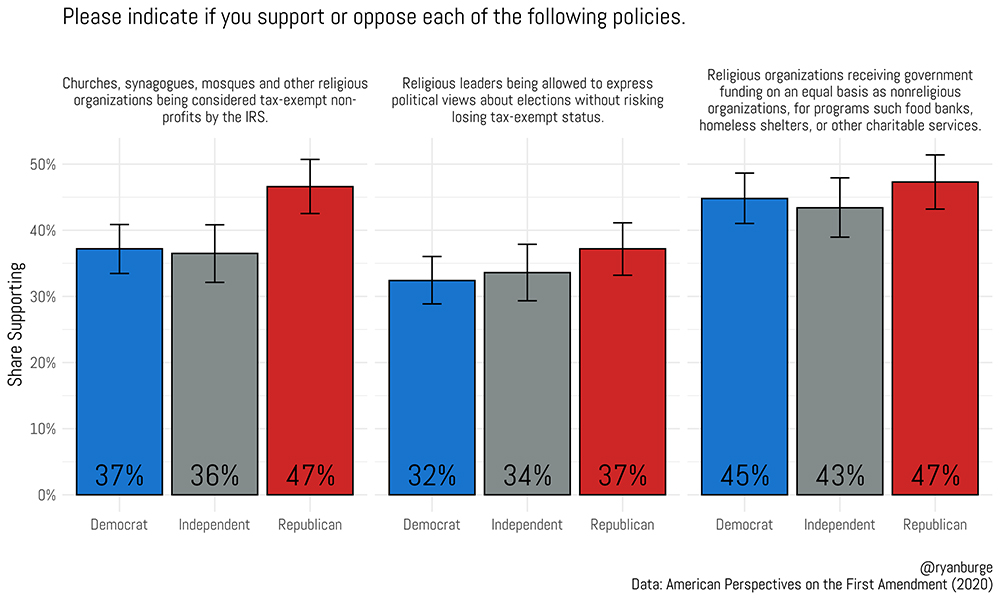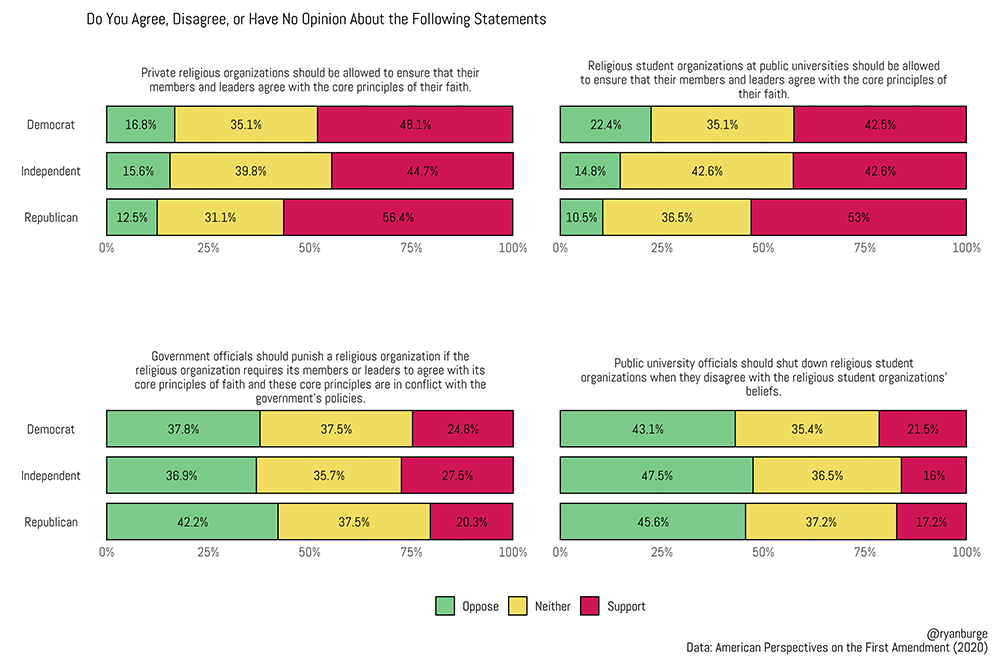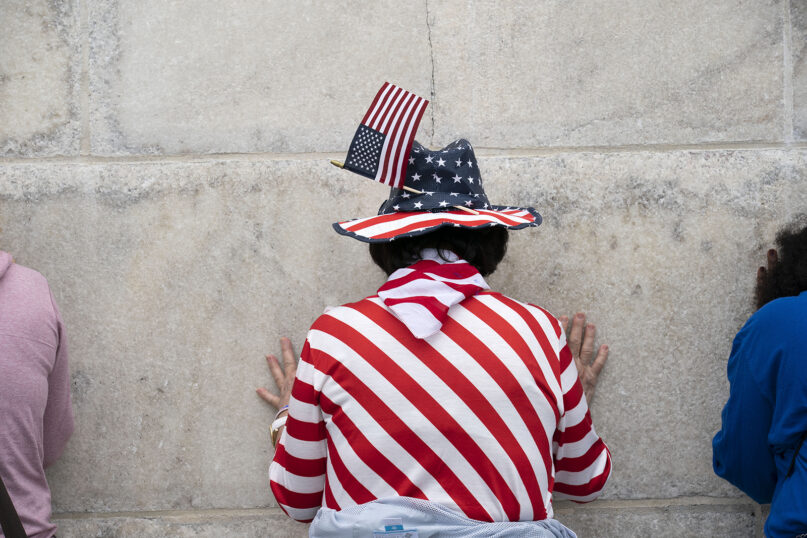(RNS) — Last month I wrote about one area of consensus amid the two warring factions in our increasingly polarized republic. While the two political parties and their constituents could not be further apart in their positions on gender and sexuality issues, abortion, taxation and a host of other questions, Democrats and Republicans do align on one topic: religious liberty.
But the alignment is not completely unaffected by politics.
In late 2020, the Becket Fund for Religious Liberty commissioned a poll that asked Americans about religious freedom in a number of contexts. What the results reveal is an American public that generally agrees on how religious liberty should be expressed and protected in the United States.

Graphic by Ryan Burge
For instance, 37% of Republicans believe that religious leaders should be able to express their political views without risking their tax-exempt status. That position is shared by 32% of Democrats — a statistically insignificant difference.
RELATED: Americans support religious freedom — as long as it’s convenient for everyone
Nearly the same share of Republicans and Democrats believe that religious organizations should be treated no differently than other nonprofits by government funders. While Republicans are about 10 percentage points more likely to believe that religious organizations should be considered tax-exempt than Democrats, that’s a small difference compared with the chasm that exists between the parties on an issue like, say, a woman’s right to choose an abortion.

Graphic by Ryan Burge
Even when asked about specific cases, the differences between the two parties are often negligible. Just 25% of Democrats and 20% of Republicans believe the government should require a religious organization to adhere to government policies if it expects government support. When asked if a publicly funded university should be allowed to shut down a religious student organization that violates school values, only 22% of Democrats and 17% of Republicans agreed.
The conclusion here is straightforward: Americans (regardless of partisan affiliation) believe that religious organizations need to be given a great deal of latitude and should largely operate unencumbered by the government.
But Republicans and Democrats are less likely to agree on which governmental institutions can be trusted to ensure religious freedom — an opinion that seems to depend on who occupies the White House. Becket asked which government entity does the best at protecting religious liberty. Is it the president, Congress, the courts, state government, or something else? There are vast differences in responses.

“Who in the government do you think does the best job at protecting religious freedom?” Graphic by Ryan Burge
Just 8% of Democrats believed that the president was a worthy champion of religious liberty. By comparison, 35% of Republicans believed that the president was a defender of the rights of religious Americans. This wide discrepancy may be due to the fact that Donald Trump was in the White House when this poll was conducted. During his reelection bid, he stated, “The day I took office … the federal government’s war on religion came to a very abrupt end.” Republicans seem to take this message to heart.
Beyond this gap, however, the differences among Democrats and Republicans on who protects religious freedom is relatively small. Seventeen percent of Democrats think that Congress does the best job, compared with 12% of Republicans. About 32% of Democrats think that the court system is the best protection for religious freedom, compared with 26% of Republicans.
What’s most surprising about the support for religious liberty is that it has stayed consistent as the share of Americans who have no religious affiliation is rapidly increasing. Last year, Pew Research Center found that 76% of Republicans and 52% of Democrats believed that churches had a positive effect on the ways things are going in the country.
Thus, there’s little reason to believe that battles over religious freedom will subside in the near future. According to this data, most Americans will side with religious organizations, even as an increasing share of them do not affiliate with a religion themselves.
The discourse about the role of religion in the United States can sometimes become toxic on social media and there are many loud voices who try to amplify messages that seek the end of religion in the United States. But this data from the Becket Fund supports other surveys indicating that the vast majority of Americans see the value of religion and want it to be protected.
(Ryan Burge is an assistant professor of political science at Eastern Illinois University, a pastor in the American Baptist Church and author of “The Nones: Where They Came From, Who They Are, and Where They Are Going.” He can be reached on Twitter at @ryanburge. The views expressed in this commentary do not necessarily reflect those of Religion News Service.)
Ahead of the Trend is a collaborative effort between Religion News Service and the Association of Religion Data Archives made possible through the support of the John Templeton Foundation. See other Ahead of the Trend articles here.





